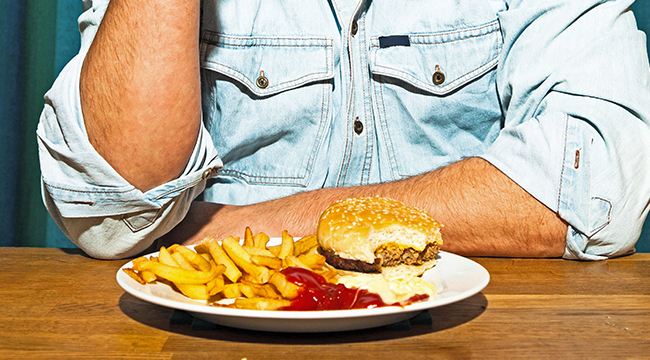
You likely don’t know Brian Wansink’s name, but you know his work. As the head of Cornell University’s Food And Brand Lab, Wansink has developed, for years, the theory that psychology and environment play an outsized role in how you eat, what you eat, and how it affects you. He’s the academic behind the study claiming men eat more pizza to impress women and the “bottomless bowls” theory about people eating endless soup when their bowls are refilled.
If for nothing else than how much mainstream traction his papers have gotten, Wansink has probably had a strong influence on how you approach what you eat. The premise is always the same: Wansink claims diet and exercise matter less than environment. Change your plate size, the colors in your dining room, the company you eat with, Wansink’s research argues, and you’ll also change your waistline. But as intriguing as these ideas are, they’re also not holding up to scrutiny. The researcher is at the center of a scientific scandal showing he’s massaged data, made technical errors, and otherwise engaged in misleading work in order to “go viral.”
The backlash started on Monday with a detailed Buzzfeed article accusing Wansink of a host of scientific crimes, including self-plagiarism, recycling papers, and, most gravely, the scientific version of putting the cart before the horse, called “p-hacking” or data dredging. To understand why this latter practice is reviled, you need to remember that the scientific method starts with a hypothesis: You figure out what you want to learn, basically, and then you do the research. Wansink is accused of doing it in reverse; he would collect data, or obtain data from other studies, and work the data around until it could fit a hypothesis that would get attention.
The problem with p-hacking is that any scientific study’s data is going to have a degree of error, some form of statistical weirdness that allows the data to line up when looked at through a specific lens. The classic example is the fact that when ice cream sales rise, so do drownings. The two have nothing to do with each other, of course; the correlation is because when it gets warm, people go in the water more often and also eat more ice cream. It’s easy to spot an implausibility like that, of course, but what if a bunch of people who eat ice cream also happen to commit murder? Without the right degree of rigor, it could be a coincidence, or it could be a causal link.
(THREAD) Inspired by @stpehaniemlee ’s new piece, we have decided to share this. We have the dubious honor of being a victim of @BrianWansink and Collin R. Payne’s early work. pic.twitter.com/s4NUd1YpqC
— Joy of Cooking (@TheJoyofCooking) February 27, 2018
As the week progressed, Wansink has come under increasing fire. On Tuesday, he was taken to task in a long Twitter thread by the staff behind The Joy Of Cooking. The tweets pointed out a 2009 study that Wansink ran — which argued that the cookbook had excessively increased calories — noting that he deliberately ignored portion sizes and the concept of leftovers (instead assuming people ate a whole lasagna in one sitting) and cherry-picked data to back up his assertions. Wansink has been accused of a “ship it” mentality where it matters more that a paper is published and gets attention than whether it’s scientifically rigorous. Last year, questions about the scientist led researcher Tim van der Zee to create the Wansink Dossier, an in-depth look at papers with various problems, ranging from the minor to the worryingly severe.
Beyond lingering questions about Wansink’s ethics, this reveals a structural problem in science. Scientists learn early on that they “publish or perish” and in the social sciences — where data relies much more heavily on interpretation and analysis than hard numbers — the temptation to read into patterns is particularly tempting. “Ice cream may make you a murderer” may be garbage science, but it’s an attention-getting headline. To be fair, it’s a problem in media coverage. While coverage from other outlets was much more extensive, Uproxx has also covered our share of Wansink’s work. In addition to the pizza study we linked above, we cited him in this discussion of eating lunch at your desk.
As Wansink holds the party line (defending himself and his approach), it becomes clear that this conversation is deeply imortant. Food science makes it clearer that what we eat, and our biological reaction to it, is crucial to our health. That means we need to be fully informed about what we’re eating, and face the occasional hard truth, like that yes, we need to hit that rowing machine and no, we can’t just cut one nutrient, like fat, out of our diets and be thin forever. We need good, hard, thoughtful science to make better-informed decisions about our health, and that can only come from responsible scientists.






